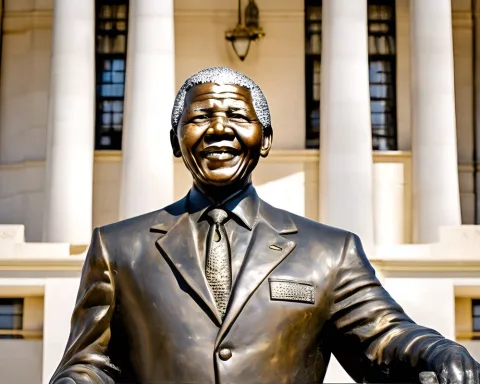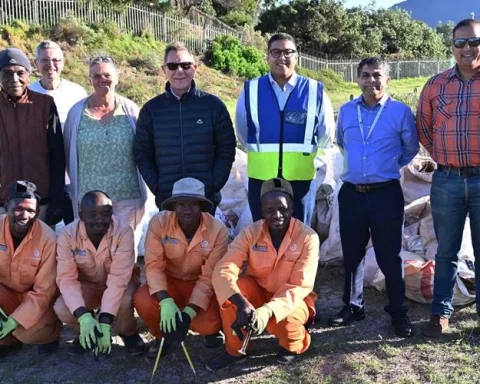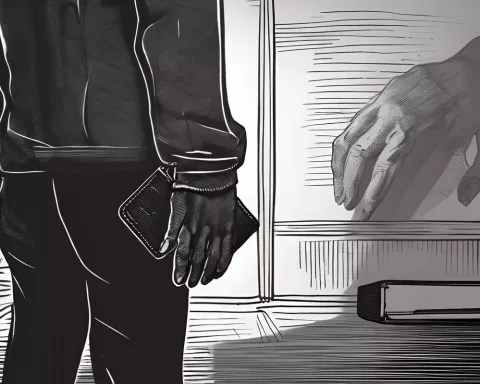The South African Parliament’s Powers and Privileges Committee praised the Western Cape High Court’s rejection of an urgent injunction filed by certain MPs, which will hold them accountable for their actions and potentially influence future behavior. The verdict highlights the accountability expected from MPs and strengthens public faith in the political framework. The upcoming hearings scheduled from December 11-14, 2023, aim to uphold the institution’s honor and are a pivotal moment in South Africa’s democratic history.
The South African Parliament’s Legal Triumph
The Powers and Privileges Committee applauded the Western Cape High Court’s rejection of an urgent injunction filed by specific MPs. The verdict strengthens democratic procedures and the authority of the Parliament’s institution, highlighting the accountability expected from MPs and bolstering public faith in the political framework. The forthcoming hearings, scheduled from December 11-14, 2023, will hold these MPs responsible for their actions and potentially influence future behavior. Upholding the honour of the institution is a key element of democracy.
The Verdict and Its Significance
In a recent assertion of the power of justice, the Powers and Privileges Committee of South Africa applauded the Western Cape High Court’s verdict rejecting an urgent injunction applied for by specific Members of Parliament (MPs). These MPs were responsible for causing a disturbance during President Cyril Ramaphosa’s two-day briefing on the Presidency budget vote on June 9th and 10th, 2022, and a question and answer session in the National Assembly on August 30, 2022. The rejection serves as a critical milestone in reaffirming the unwavering principles of democratic procedures and the authority of the Parliament’s institution.
The verdict exhibits the strong adherence to democratic norms and processes, thereby strengthening the faith of the populace in the political system. The dismissal of the urgent injunction represents a testament to the efficient operation of South Africa’s democratic system.
The Backstory and Court Proceedings
The origins of this issue can be traced back to December 6, 2023, when the Parliament’s legal counsel tabled a comprehensive report to the Western Cape High Court. The report outlined the committee’s decision not to summon the Speaker of the National Assembly, Ms Nosiviwe Mapisa-Nqakula, as a witness. The MPs had called for an urgent injunction against the Parliament. However, the Parliament’s legal team presented a strong argument resulting in the rejection of the MPs’ appeal with expenses on December 8, 2023.
This legal victory set the stage for the forthcoming hearings of the implicated MPs. The hearings are related to the commotion that occurred on August 30, 2022, and are scheduled to start from the next day and continue until Thursday.
The Hearings and Their Schedule
The timetable for the hearings has been thoughtfully arranged. On Monday, December 11, 2023, the hearing concerning the August 30, 2022 incident is set to commence at 10:00 and proceed until 11:30, followed by a quarter-hour tea break. Following the break, the hearing will resume from 11:45 to 13:15, leading up to a 45-minute lunch break. The hearing will then continue from 14:00 to 16:00. Similar agendas are slated for the subsequent days, December 12 and 13, 2023.
The final day of the hearing, Thursday, December 14, 2023, follows a similar structure – commencing from 10:00 until 16:00 with tea and lunch breaks interspersed. This systematic approach to the hearings epitomizes the seriousness of the case and the dedication of the Powers and Privileges Committee to maintain the Parliament’s dignity.
The Implications and Importance of the Hearings
The rejection of the urgent injunction and the subsequent hearings underscore the effectiveness of South Africa’s democratic machinery. This highlights the accountability that is anticipated from the Members of Parliament, thus bolstering public faith in the political framework.
In the broader context of governance, such instances of legal reverence and due process are integral in shaping a society where no individual is above the law. The Powers and Privileges Committee’s attitude demonstrates its commitment to its charter, reminding public figures of their duties and the consequences of their actions within the esteemed confines of the Parliament.
The venue for these significant hearings, M46, is set to witness a pivotal moment in the democratic history of South Africa. The outcomes of these hearings could potentially influence future behavior of the MPs and emphasize the need for decorum and respect for the sanctity of parliamentary proceedings.
It is vital to remember that while the MPs embody the voice of the people, they also bear the duty to uphold the honour of the institution they represent. The denial of the urgent injunction by the Western Cape High Court and the ensuing hearings serve as a stern reminder of this key element of democracy.
What is the recent legal triumph of the South African Parliament?
The South African Parliament’s Powers and Privileges Committee praised the Western Cape High Court’s rejection of an urgent injunction filed by certain MPs, which will hold them accountable for their actions and potentially influence future behavior. It highlights the accountability expected from MPs and strengthens public faith in the political framework.
When are the upcoming hearings scheduled?
The upcoming hearings are scheduled from December 11-14, 2023.
What do the hearings aim to do?
The hearings aim to uphold the institution’s honor and are a pivotal moment in South Africa’s democratic history. They will hold these MPs responsible for their actions and potentially influence future behavior.
What was the cause of the issue?
The MPs were responsible for causing a disturbance during President Cyril Ramaphosa’s two-day briefing on the Presidency budget vote on June 9th and 10th, 2022, and a question and answer session in the National Assembly on August 30, 2022.
Why are the hearings important?
The rejection of the urgent injunction and the subsequent hearings underscore the effectiveness of South Africa’s democratic machinery. This highlights the accountability that is anticipated from the Members of Parliament, thus bolstering public faith in the political framework. The outcomes of these hearings could potentially influence future behavior of the MPs and emphasize the need for decorum and respect for the sanctity of parliamentary proceedings.
What is the significance of the verdict?
The verdict exhibits the strong adherence to democratic norms and processes, thereby strengthening the faith of the populace in the political system. The dismissal of the urgent injunction represents a testament to the efficient operation of South Africa’s democratic system.











